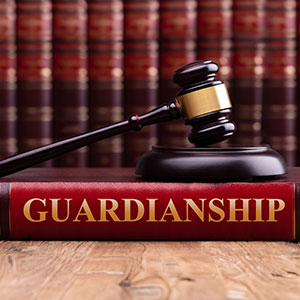
Passing your family heirlooms to your family should be a welcome and sacred tradition. But sadly, for many families it can cause a lot of drama. Did you know that your family is more likely to fight over sentimental items instead of money? If you don’t want that to happen in your family, here’s what you can do: 1. Add Specific Designations To Your Will And/Or Trust Typically, a Will or Trust will specify that all personal property goes to the “residue” and is split equally between all heirs. But you may want to get more specific with items that are already family heirlooms or that you want to become family heirlooms. All too often children will discover after Mom or Dad has passed that an item was promised to more than one person. This is why it is important to create a list of your family heirlooms, assign names to each item and share that list during a family gathering while you’re still alive and well. This list (formally called a personal property memorandum) can then be incorporated into your will or trust, so it becomes legally binding. 2.…Read More
Review the following tips before buying a life insurance policy. Get The Right Type And Amounts Do some preliminary research. You need to be sure you are in the know, so you don’t buy a product or amount that you don’t need or overlook the types and amounts that are right for you. Your estate planning attorney can help you make objective decisions about your insurance needs. If You Can, Supplement Your Employee-Benefit Life Insurance Let’s face it, jobs change. You shouldn’t rely on an employee benefit that may not carry over if you leave the company. Also, you may experience medical issues before you leave the company, which may make it more difficult to buy coverage later. So consider buying outside coverage while you can. Don’t Name A Minor As A Beneficiary If you’ve named a minor child as a beneficiary, or even a secondary beneficiary, after your spouse, you could be creating double trouble. First, your life insurance would have to go through a court process and subject to the control of a financial guardian, and then second, whatever is left would be distributed to your minor child…Read More

Is it time to have “the talk” with your kids about your estate planning? It can be hard to have these conversations with your family. Here are some tips to make it easier. Preparation Is Key 1. When You Choose Important Decision Makers, Make Sure You Match The Skills Of The Person To The Job For example, the Personal Representative (also known as the executor) of a will must be able to gather assets, prepare paperwork, handle finances, and deal with potential family disputes. Don’t choose a Personal Representative that isn’t up to that job. Too often, people choose executors, trustees, guardians, and powers of attorney based on emotions or arbitrary factors, such as who is the oldest child or who might be offended if not chosen. These are difficult, demanding jobs, and you need to choose people who can handle them. It also helps to talk these issues through with an experienced attorney or confidant in advance of making your selections. 2. Prepare Your Paperwork Work with your lawyer to make the best decisions possible, and commit them to writing. This will help reduce any misunderstandings about your wishes.…Read More

The thought of not being around to raise your children feels crushing and too awful to consider. But if you don’t name a guardian for your children and you pass away or become incapacitated while they are minors, a judge who doesn’t know you, your children or your family will decide who raises them. Families tend to fight over children, especially if there’s money involved. And what if you have family that you don’t want raising your children? How To Choose A Guardian Consider these factors when choosing candidates for guardians and back up guardians: How well the child and potential guardian know and enjoy each other Location – if the guardian lives far away, your child would have to move from a familiar school, friends, and neighborhood. If your guardian is not local, do you have someone locally that could serve temporarily? Parenting style, moral values, educational level, health practices, religious/spiritual beliefs The child’s age and the age and health of the guardian-candidates: A younger guardian, especially a sibling, may be concentrating on finishing college or starting a career. An older guardian may become ill and/or even die before…Read More

Myth #1: “Estate Planning Is Only For The Very Rich Or Old.” False! You don’t need to be rich or old to start planning. That’s because estate planning is for anyone who may pass away or get really sick. And that can happen to anyone! Estate planning is about making sure that someone can manage your finances if you’re incapacitated, your health care wishes are carried out, your kids are taken care of and that your property goes to the right people. Myth #2: “Estate Planning Is Too Expensive.” False! In fact, exactly the opposite is true. In the long run, good estate planning saves both time and money. Without an estate plan, your loved ones may have to deal with confusion, undue financial hardship and family drama, in addition to probate, which can cost a lot more than your initial investment in an estate plan. Attorney Myrna Serrano Setty’s estate plans are budget friendly because she works with her clients to figure out what works for them, like cash, credit or a payment plan. Myth #3: “I Don’t Need A Living Will Because My Family Will “do The Right…Read More
